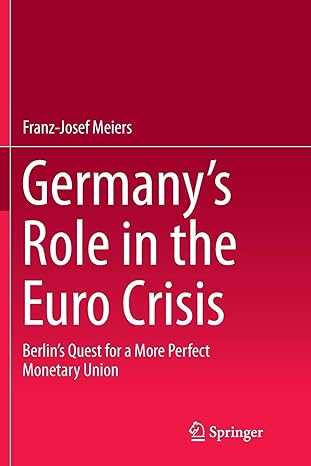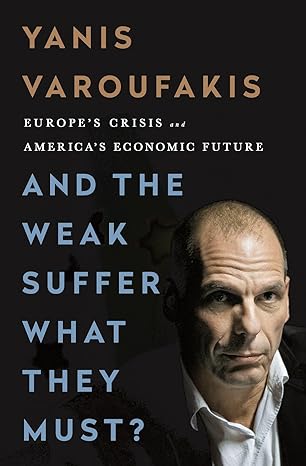Go back


Germanys Role In The Euro Crisis Berlins Quest For A More Perfect Monetary Union(1st Edition)
Authors:
Franz-josef Meiers

Cover Type:Hardcover
Condition:Used
In Stock
Shipment time
Expected shipping within 2 DaysPopular items with books
Access to 30 Million+ solutions
Free ✝
Ask 50 Questions from expert
AI-Powered Answers
✝ 7 days-trial
Total Price:
$0
List Price: $80.08
Savings: $80.08(100%)
Solution Manual Includes
Access to 30 Million+ solutions
Ask 50 Questions from expert
AI-Powered Answers
24/7 Tutor Help
Detailed solutions for Germanys Role In The Euro Crisis Berlins Quest For A More Perfect Monetary Union
Price:
$9.99
/month
Book details
ISBN: 3319370529, 978-3319370521
Book publisher: Springer
Get your hands on the best-selling book Germanys Role In The Euro Crisis Berlins Quest For A More Perfect Monetary Union 1st Edition for free. Feed your curiosity and let your imagination soar with the best stories coming out to you without hefty price tags. Browse SolutionInn to discover a treasure trove of fiction and non-fiction books where every page leads the reader to an undiscovered world. Start your literary adventure right away and also enjoy free shipping of these complimentary books to your door.
Book Summary: This book analyses Germany’s role in the euro crisis. Based on the perception of Berlin as the emerging capital of the European Union, the author investigates three interrelated issues: Did the German policy approach of imposing austerity programs on countries in the middle of a deep recession contribute to the successful management of the euro crisis? Does Germany extend its sway over its European partners by forcing them to surrender to the German diktat of fiscal Disziplin and economic efficiency? Is the stubborn insistence on rigid fiscal adjustment another ominous sign of the Berlin Republic moving away from the country’s traditional European vocation toward an imperial leadership role? The book’s main argument is that Germany’s role in and responses to the euro crisis can best be explained by different concepts of self, historical memory, and institutional practices.
Customers also bought these books
Frequently Bought Together
Top Reviews for Books
Visa
( 5 )
"Delivery was considerably fast, and the book I received was in a good condition."










